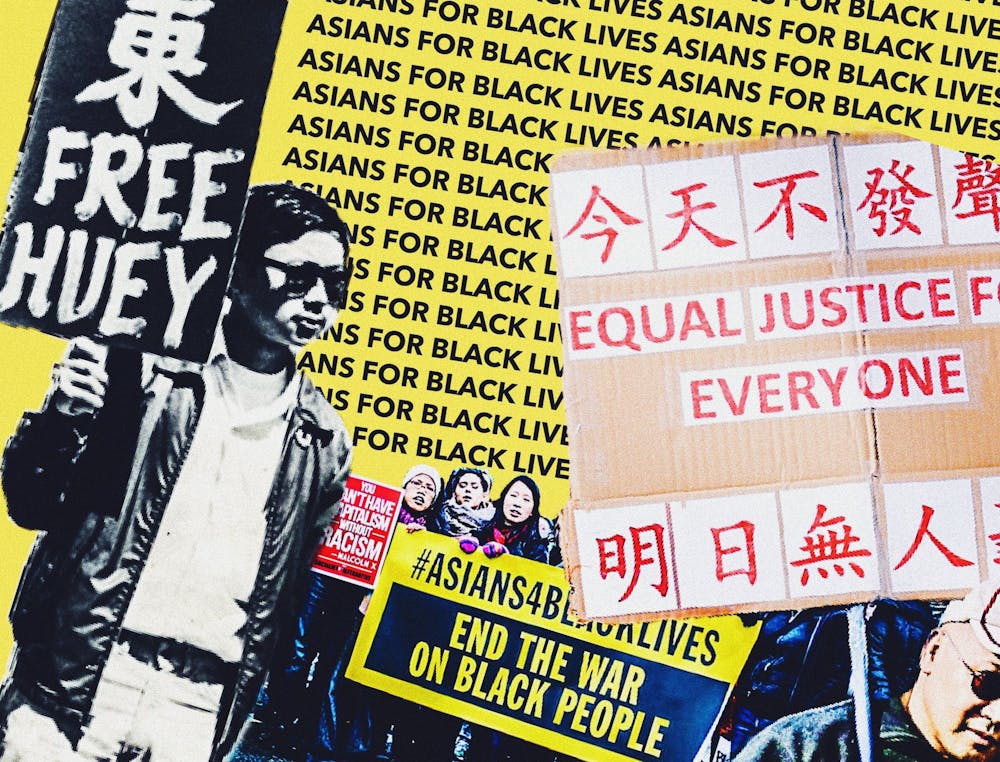
Days after George Floyd’s death, the NYU chapter of the Lambda Phi Epsilon fraternity was suspended after racist group chat messages concerning what happened in Minneapolis were leaked on Twitter. Lambda Phi Epsilon is an Asian-interest fraternity and previously had a chapter at Penn before it was shut down in 2018.
One of the messages read: “Black people never did shit for us when we were down, they made it exceptionally worse for us, it’s not hard to understand why Asians don’t feel inclined to help when they’ve stepped on us due to [jealousy] because of a ‘model minority’ label white people slapped onto us.” These group chat messages expose the apathy and deeply-ingrained anti-Blackness in our Asian American communities.
Another fraternity member wrote: “As f**ked up as it is, I think the threat of police brutality actually keeps those communities [safer] than without it.” He later asked the group not to screenshot the messages. While these individuals obviously sensed that what they were saying was wrong, or at the very least, not politically correct, they felt comfortable enough to share these thoughts in an environment in which they felt others would agree with them.
Of course, the words of these few individuals do not represent the entirety of the Asian American community, but it is important to recognize that these attitudes do exist and are more common than we think.
There are several myths in these messages that should be debunked. Firstly, the “model minority” label is nothing to be jealous of. It is a concept created by people in power to keep Asian Americans in line, and to turn us against other minority groups. Clearly, it is working.
Secondly, the statement that “Black people never did shit for us when we were down” is simply not true. In the current age of unjustified police violence against Black bodies, the Asian American community must not forget the days of Afro-Asian solidarity in the 60s and 70s. We must remember our shared history of Yuri Kochiyama cradling the dying Malcolm X in her arms, and of the Asian American Political Alliance standing in support of the jailed Black Panther party leader, Huey P. Newton. The Black Panther Party’s militant activism paved the way for AAPI activists such as Yuri Kochiyama, Fred Ho, and the Red Guard Party. From the Black Panther Party, Asian Americans adopted ways to demonstrate our anti-assimilation attitudes and to “perform” our political resistance. The AAPI community owes the Black community profound political debt for their leadership.
In the aftermath of the group message leak, Lambda Phi Epsilon issued a statement that “the attitudes expressed by individual members of the New York University chapter do not reflect the values of the international Fraternity.” One member posted an apology on the Facebook group “subtle Asian greeks”, saying that he has “no right to speak on behalf of life in Compton or Chicago or any Black community”.
Regardless, some Twitter users are engaging in a practice called “doxing." Users are trying to find as much of the fraternity members’ private information as possible, even going as far as contacting a company one of them is currently interning for. While these individuals should be punished for their actions, exposing their private information is not an effective way to change their attitudes. The online community should focus on letting these individuals learn and grow, instead of fueling further hatred.
Now is not the time for minority groups to fight each other. As non-Black people of color, Asian Americans do not share the trauma of the Black community and cannot dismiss their pain. What we can do is learn from our history and stand in solidarity with the Black community at this difficult time. To be anti-racist does not mean to be free of racism. It means fighting racism when we recognize it, even if it is within ourselves.
LILLIAN WENG is a rising College junior majoring in International Relations and Cinema and Media Studies. Her email address is wengxin@sas.upenn.edu.
The Daily Pennsylvanian is an independent, student-run newspaper. Please consider making a donation to support the coverage that shapes the University. Your generosity ensures a future of strong journalism at Penn.
Donate






